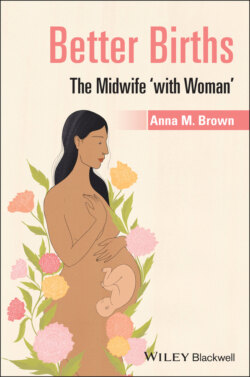Читать книгу Better Births - Anna Brown - Страница 30
Advocacy
ОглавлениеMaking decisions is challenging and complex, especially within midwifery practice, and has an impact on the type and standard of care that is provided (Smith 2016). Reasoned and safe choices based on evidence and intuition can be achieved through this partnership with women (Daemers et al. 2017). A sympathetic and empathetic approach to decisions is perceived by women to result in a more positive birth experience (Boyle et al. 2016). However, pain during childbirth is one aspect that can hinder the decision‐making process (Whitburn et al. 2019) and requires midwives to exercise the concept of relational autonomy to protect the woman when she cannot make reasoned decisions (Brown and Salmon 2018). In this respect, autonomy (discussed earlier in this chapter) ‘is a key concept in understanding advocacy’ (Cole et al. 2014, p. 576).
Advocacy has had an important role in professional/service user relationships. One of the ‘key messages’ in ‘Midwifery 2020: Delivering expectations’ is in the section ‘Developing the midwife's role in public health and reducing inequalities’ which states:
Midwives should use their advocacy role for influencing and improving the health and wellbeing of women, children, and families. This will include making the economic case for committing resources so that the midwife can deliver public health messages in the antenatal and postnatal periods and ensuring that there is a midwifery contribution at policy, strategic, political, and international level (p. 7).
Working alongside women, midwives exercise what has been referred to as ‘skilled companionship’ (Dierckx de Casterlé 2015) as they journey ‘with women’ through the birth and postnatally. Through this concept, midwives integrate skills and companionship and bring together the scientific and moral aspects of care. This requires midwives to be committed to provide an empathic presence during childbirth events. Women thus feel accompanied and supported. However, ethical challenges may arise should women make choices which are considered detrimental to the health of themselves, their baby or the midwife (Jenkinson et al. 2017). In such situations, midwives may experience ethical uncertainty or, perhaps, unpreparedness to respond ethically to women's needs and preferences. There may, for example, be a conflict of principles between respect for autonomy and beneficence/non‐maleficence and justice. The midwife should use her advocacy role by taking the lead to facilitate making decisions for the woman and meeting her holistic needs and interests through empathetic, intuitive and sensitive support and ‘companionship’.
